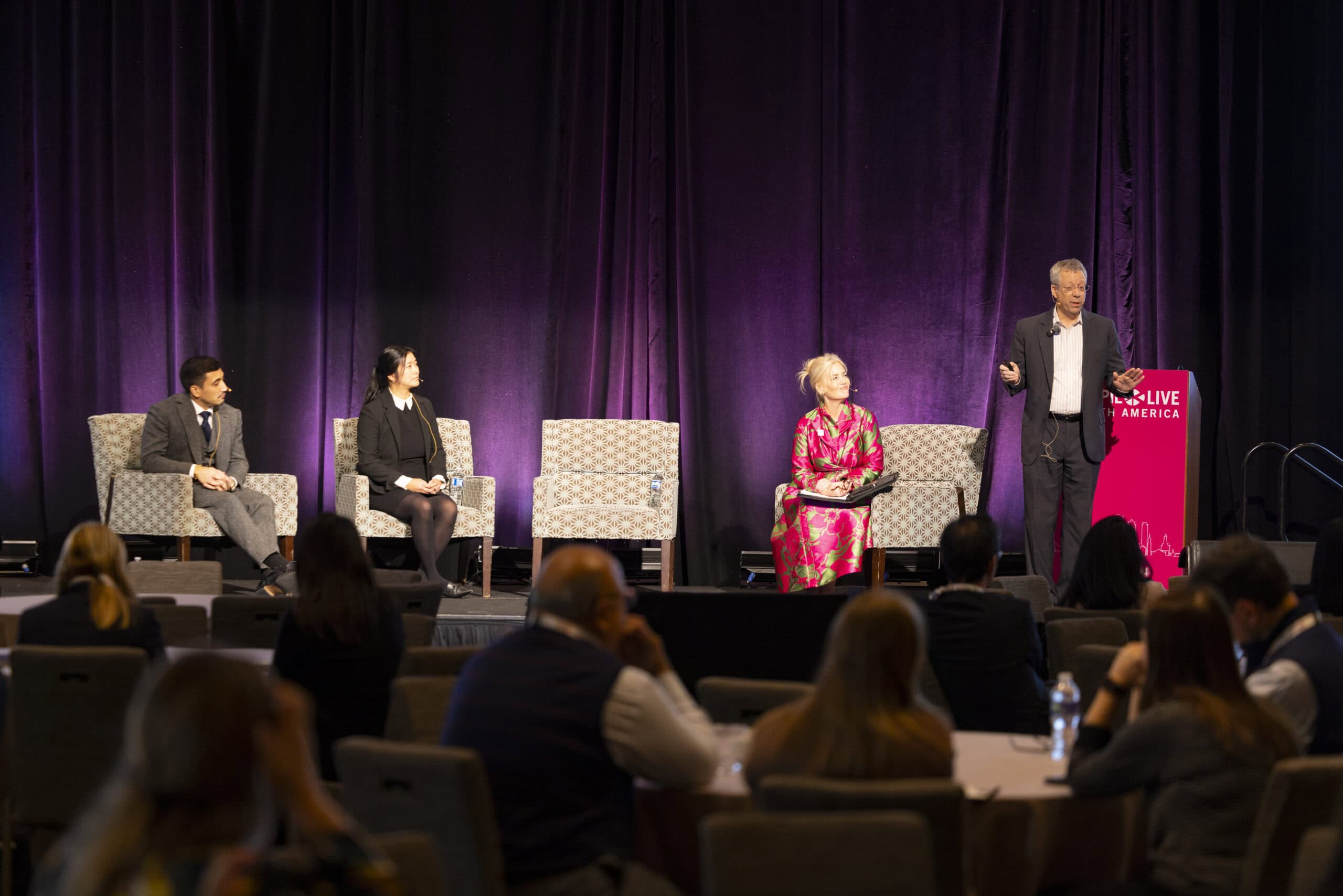While the sector welcomed the release of IIE’s 2023/24 Open Doors data, revealing a record 1.1 million international students in the US, panellists at The PIE Live North America conference highlighted a growth that has been driven by a surge in Optional Practical Training, rather than new enrolments.
“We had just 182 more international students that came into the US than last year, the [real] difference is 43,989 more OPT students … so we are basically flat in terms of overall growth this year from last year,” said Intead founder, Ben Waxman.
While the surge in international graduates taking part in OPT amounted to 22%, new student enrolments increased by just 0.1%.
OPT offers international students an opportunity to work in the US for 12 months. Those with a degree in a STEM field have the option to extend their work period by another 24 months. These individuals are therefore counted in international student numbers.
Speaking on her first conference panel since being appointed as AIEA CEO, Clare Overmann said the stagnant growth in new enrolments was “a little concerning”.
While the number of graduate students from abroad increased by 8%, undergraduate levels declined by roughly 1%.
The increased number last year was purely a function of OPT
John Sherman, The Evaluation Company
Elsewhere, stakeholders gathered in Boston expressed fears about what a second Trump presidency could mean for international students in the US, particularly after the appointment of anti-immigration Stephen Miller as White House deputy chief of staff for policy.
“There is concern about the regulatory environment and the policy changes that could come… it’s not enough for us to come together as colleagues, we need to be joined by employers and the US Chamber of Commerce to advocate with us,” said Waxman.
Fragomen immigration partner Aaron Blumberg said that he didn’t anticipate OPT or STEM OPT to be abolished but predicted that Biden’s executive orders helping international students will be “eliminated in the first few days of the presidency”.
During Biden’s presidency, he announced several immigration-related executive orders strengthening integration and inclusion and revoking Trump’s previous order tightening harsh immigration enforcement, as well as a memorandum that fortified Deferred Action for Childhood Arrivals (DACA).
In the US, the president has the power to issue executive orders that have the force of law and require no approval from Congress. Only a sitting US President may overturn an executive order by issuing another executive order to that effect.
Despite Trump’s repeated calling for the abolition of the Department of Education while on the campaign trail, delegates said that they didn’t expect him to follow through with the policy.
Stakeholders raised concerns about the potential rolling back of improvements made in visa processing from the global south, warning that institutions must be prepared to react to the “dynamic environment” of Trump’s unpredictability.
They urged sector members to leverage the economic benefit of international students – who contributed $50 billion to the economy in 2023 – which the incoming administration is likely to want to preserve.
“What I took away from the IIE data was a broader observation about the pace of growth in the United States,” said Overmann.
“It took 50 years from 1949 for us to get to 500,000 students and then only 25 to get to one million, and from 2000-2025, we’ve seen the professionalisation and elevation of international education which will be one of the key drivers in making sure that we continue to recover quickly from some of these challenges and dips.”
The increasingly challenging policy landscapes in Australia, Canada and the UK were the subject of many conversations at the conference, with delegates highlighting the huge capacity of the US to increase international student numbers which currently only make up 6% of the total student population.
“This time the rules are different… there are caps in other countries which make the US look more favourable,” said Christopher Connor, Buffalo University vice provost from enrolment.
“Whether or not the caps will impact us favourably will depend on whether the administration’s policies obstruct some of this,” he added.
Going forward, stakeholders emphasised the need for greater bipartisan collaboration not just within the sector but across businesses, government and policymakers to leverage the value of international education.

